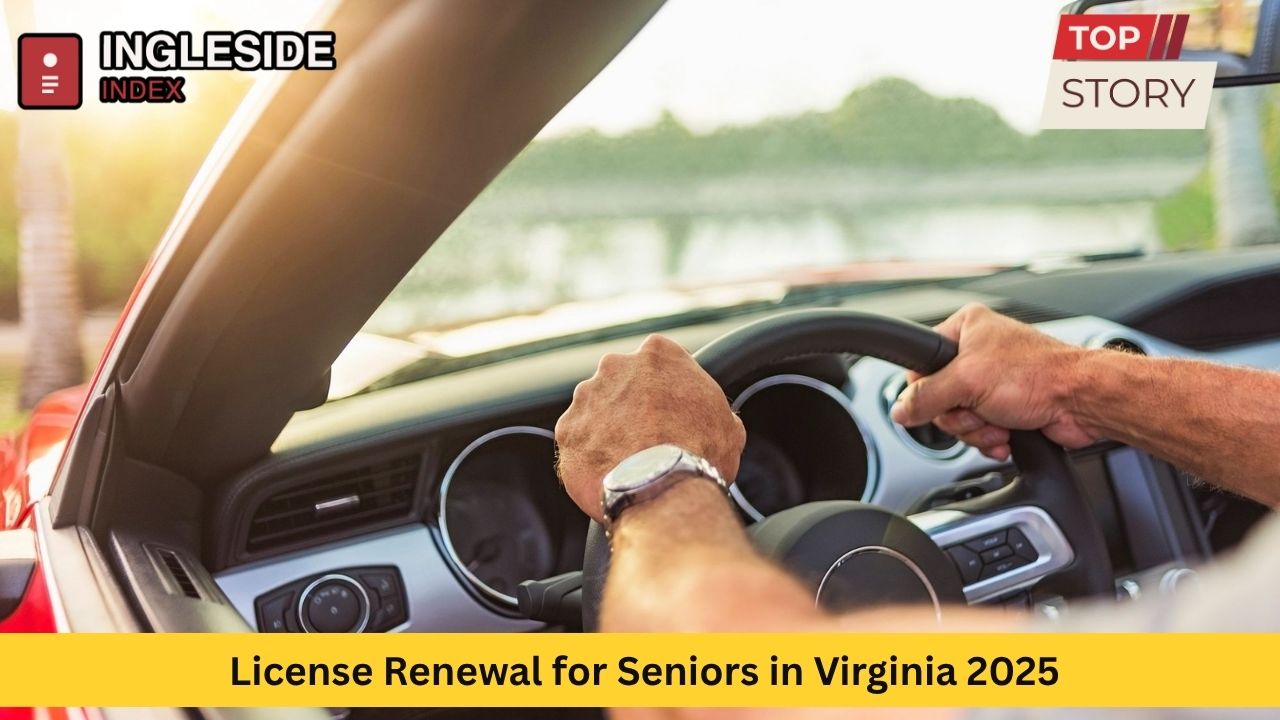Virginia’s Department of Motor Vehicles (DMV) continually updates its procedures to meet the needs of its growing population. With more than 1.2 million residents in Virginia over the age of 65, keeping the roads safe and accessible for senior drivers has become an area of focus. Whether you live in Alexandria near the nation’s capital, the mountain communities of Roanoke, or the coastal city of Chesapeake, the principles of senior license renewal remain statewide but can include localized resources to ease the process.
Why License Renewal is Different for Seniors
As drivers enter their golden years, their needs and capabilities can change. Virginia recognizes this with special legislative attention to seniors’ safety, balancing public safety with the independence seniors treasure. In Virginia, anyone aged 75 and older is subjected to slightly different renewal procedures than younger residents, reflecting a nationwide trend to ensure ongoing driving competence while offering support.
Renewal Procedures for Seniors Aged 75 and Over
Residents of cities such as Arlington, Newport News, or Suffolk who are 75 years or older are required to renew their driver’s license in person every five years instead of the longer cycles permitted for younger adults. This in-person process allows the DMV to verify documents, update photographs, and, most importantly, ensure that the individual’s vision is sufficient for safe driving.
Some key changes that Virginia seniors should be aware of in 2025 include mandatory vision screenings, some potential for driving tests under certain conditions, and stricter documentation checks to enhance road safety.
Vision Screening Requirements
Vision changes are a common part of aging, and poor vision is among the leading causes of driving impairment in the senior population. Virginia’s DMV requires all drivers aged 75 and up to take a basic vision test at every renewal. This can be conducted directly at DMV offices in cities like Lynchburg, Charlottesville, or Manassas, or by submitting a vision report from a certified eye-care professional.
The minimum acceptable vision standard is typically 20/40 in either or both eyes, with or without corrective lenses. Seniors with more significant vision loss may receive a restricted license, which could allow for daytime-only driving or driving with corrective lenses.
Documentation Needed for Renewal
The license renewal process for seniors in Richmond, Hampton, or Danville includes bringing specific documents to the DMV. These include:
-
The current or recently expired driver’s license
-
Proof of identity (such as a passport or birth certificate)
-
Proof of Virginia residency (e.g., a utility bill, lease agreement)
-
Social Security Number (SSN) or proof of ineligibility
Up-to-date documentation ensures the DMV has the latest information, including any name changes due to marriage or legal action.
Physical and Cognitive Health Considerations
Certain health conditions may require additional documentation or discussion during the renewal process, especially if they could impact safe driving. Conditions such as Alzheimer’s disease, Parkinson’s, or stroke may trigger a requirement for a medical report from the applicant’s physician. Virginia’s DMV may request a medical review if a family member, law enforcement officer, or healthcare provider expresses concerns about a senior’s ability to operate a vehicle safely.
Several urban and suburban cities, including Fairfax and Portsmouth, have DMV locations with trained staff to help seniors or their families navigate these additional requirements.
Road Test Requirements and When They Apply
While most seniors will not need to retake the road test to renew their license, the Virginia DMV reserves the right to require a new road skills evaluation if there are concerns about mental or physical ability. If you’ve had an accident in the past year in places like Fredericksburg or Harrisonburg, received certain traffic violations, or someone reports concerns about your driving, a road test may be required.
Virginia’s DMV makes every effort to avoid unnecessary inconvenience while ensuring drivers on the road are safe and capable. Seniors can inquire in advance at their local DMV if a road test will be needed.
Remote and Online Services for Seniors
Virginia DMV has made strides in making many services accessible online, but those aged 75 and over must renew their licenses in person due to the vision and identity verification requirement. However, seniors in areas such as Virginia Beach or Chesapeake can complete parts of the process online, like updating personal information or scheduling appointments, streamlining their visit to the DMV.
DMV Select locations across the state, including in small communities like Staunton and Wytheville, also provide specialized support for seniors.
Special Circumstances: Non-Drivers and Handicap Placards
Seniors who no longer wish to drive but need identification for non-driving purposes can receive a state-issued photo ID card from the Virginia DMV, ensuring continued access to essential services and travel within the state.
For those requiring handicap placards or license plates due to mobility impairments, the DMV offers both temporary and permanent options. Seniors can apply for these through their healthcare provider, and cities such as Norfolk and Arlington have dedicated DMV clerks to assist with these applications.
Common Challenges and Solutions
Transportation Access
In many rural Virginia counties, public transport options are limited, which increases the importance of senior license renewal. Programs like RideShare and local senior shuttle services in cities such as Roanoke and Charlottesville help bridge transportation gaps for seniors who don’t drive.
Medical Restrictions
Certain medical conditions can result in restricted licenses, which may allow only daylight driving, reduced speed, or a requirement to wear corrective lenses. Usually, these restrictions are clearly printed on the physical license, and changes must be updated immediately at any Virginia DMV office.
Caregiver Involvement
Family members and caregivers can accompany seniors to DMV visits in cities like Alexandria or Hampton for support. Additionally, the DMV has provisions for power of attorney and other forms of legal assistance, ensuring that seniors can navigate license renewal confidently with their families’ help.
Understanding the Costs
As of 2025, the fee for a five-year driver’s license renewal for seniors is set by the state and is typically similar to the fees paid by younger age groups. Over 90% of Virginia’s senior drivers renew without issue at their first in-person trip. However, costs associated with eye exams or physician’s reports are the responsibility of the applicant.
In several cities, local agencies and community groups offer discounts or free vision screenings to help offset these costs.
Senior-Friendly DMV Locations
Virginia has expanded DMV service centers, including “Senior Outreach Hours” in high-density senior populations such as those in Henrico, Virginia Beach, and Norfolk. These centers provide wheelchair accessibility, seating accommodations, and staff trained to assist seniors with limited technology familiarity.
Tips for a Successful Renewal Visit
-
Book Ahead: Use online scheduling when possible, even though the renewal must be completed in person. This reduces wait time, especially in busy DMV locations in Richmond or Fairfax.
-
Organize Your Documents: Secure all the necessary paperwork before arriving to avoid delays.
-
Bring a Companion: If you have mobility or cognitive concerns, bring a trusted family member for additional support.
-
Take a Vision Test in Advance: Many optometrists in Virginia can complete the DMV’s Vision Screening Form, allowing for a faster renewal visit.
-
Note Special Hours: Look out for “Senior Only” service windows or dedicated times at DMV centers in larger cities.
-
Stay Informed: Check the Virginia DMV website for updates to procedures, especially as new legislation may affect eligibility or requirements for 2025.
Stats and Trends: Seniors on the Road in Virginia
The number of licensed senior drivers in Virginia has grown considerably:
-
Over 850,000 licensed drivers in Virginia are 65 or older.
-
Cities like Virginia Beach and Fairfax County each have more than 80,000 senior licensed drivers.
-
Around 72% of seniors report using their own vehicles as their primary mode of transportation.
-
In 2024, roughly 40,000 senior Virginians renewed their licenses statewide.
Accident rates for seniors remain lower per capita than for some younger age groups, thanks largely to cautious driving habits and medical screening requirements. Still, the DMV keeps a close watch on accident trends and adjusts its procedures as necessary.
Local Spotlight: How Major Cities Serve Their Senior Drivers
Richmond
Richmond’s central DMV center hosts quarterly “Senior Safe Driving Days,” offering free vision checks and driving safety seminars.
Virginia Beach
With one of the state’s highest concentrations of seniors, Virginia Beach’s multiple DMV branches offer additional staff during morning hours, prioritizing older adults for faster service.
Arlington
Arlington County’s DMV partners with local hospitals to provide medical clearance forms, making the vision and health verification steps easier for seniors with complex medical histories.
Norfolk
Norfolk DMV locations provide multilingual assistance for seniors within its diverse population, along with free community ride-along programs for those wishing to practice before a possible road test.
Looking Ahead: Upcoming Changes in 2025 and Beyond
Anticipated DMV technology upgrades will further streamline the renewal experience for seniors, adding digital check-in kiosks and expanding partnerships with healthcare providers for secure transmission of vision and medical screening results.
New licensing laws are being proposed to provide incentives for voluntarily surrendering licenses when driving is no longer safe, with a focus on offering alternative transportation options to maintain mobility.
Frequently Asked Questions
Q: Can a family member renew a senior’s license for them?
A: No, the license holder must appear in person due to the vision and identity requirements. However, assistance can be provided at the DMV.
Q: What if a senior driver fails the vision test?
A: They may be referred to an optometrist for further assessment and can reattempt the test with corrective measures.
Q: Are there exemptions for homebound seniors?
A: Currently, there aren’t statewide exemptions; all drivers aged 75 and up must renew in person. However, some localities may offer transportation support.
Q: Does surrendering a license mean losing ID altogether?
A: No, the DMV provides photo ID cards for non-drivers, ensuring access to essential services and travel.
Final Thoughts: Remaining Independent and Safe
License renewal for seniors in Virginia is about more than just paperwork—it’s about preserving independence, ensuring your own safety, and contributing to the well-being of the broader community. By understanding the process and leveraging local resources—from Alexandria to Roanoke, and everywhere in between—Virginia’s seniors can continue to drive with confidence for years to come.
Staying proactive, keeping documentation organized, scheduling regular health checks, and making use of local senior services can turn license renewal into a straightforward and empowering experience. As Virginia advances into 2025, senior drivers can look forward to even better support, smarter systems, and a strong commitment to their place behind the wheel.




